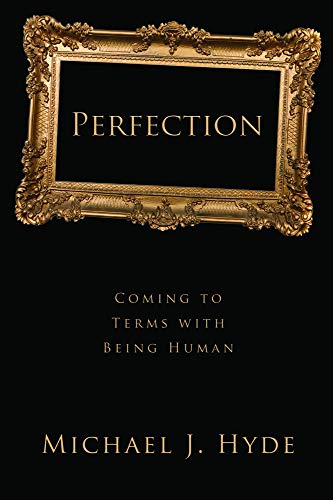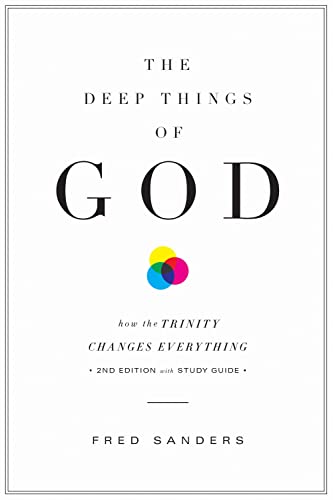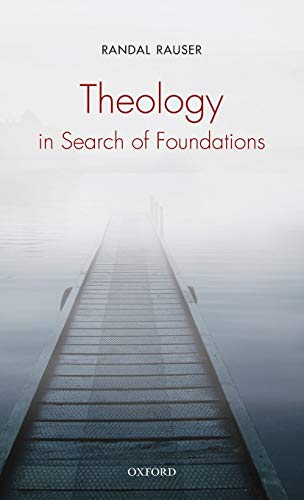Volume 35 - Issue 3
Contrarian Reflections on Individualism
By D. A. CarsonAbstract
Not many voices are raised these days in support of individualism. The left will not help, of course, for rugged individualism is associated in their minds with nineteenth-century robber barons and other greedy swine. Goodness surely lies in communitarianism, not individualism. Those like Thomas Sowell who complain that this popular analysis of the nineteenth century does not stand up very well to sober facts are not paid much attention.
Not many voices are raised these days in support of individualism. The left will not help, of course, for rugged individualism is associated in their minds with nineteenth-century robber barons and other greedy swine. Goodness surely lies in communitarianism, not individualism. Those like Thomas Sowell who complain that this popular analysis of the nineteenth century does not stand up very well to sober facts are not paid much attention.2 If the right rejoices in the individualism that ostensibly characterizes an uptick in Western productivity and bemoans increasing statism, it is soon told that those early years were far more communitarian than people imagine; it is the present that is disturbingly individualistic.3 Sociologists like Wuthnow and Bellah chart our individualism, and many conclude that Generation X is particularly individualistic.4 Individualism has debased evangelicalism into a kind of syncretism;5 spiritually, we need instruction on how to meet the challenges.6 In a recent and generally excellent book on ecclesiology, Jonathan Leeman devotes not a few pages to denouncing the individualism which, as he sees it, is one of the evils that blinds many people, especially in the West, from seeing how important the church is in the Bible.7 In short, on all sides we are being taught that individualism dominates Western thought, and it is bad.
Without doubting that there is a fair bit of truth in these analyses, I wonder if a few questions should not be raised. Are cultures widely regarded as fostering little individualism intrinsically better places for the gospel to flourish? Is it not the case that tightly knit cultures that encourage various kinds of group think are often less hospitable to conversion and evangelistic enterprise than is the West? These can vary quite a lot, of course. But many gospel ministers and missionaries in Japan would like to inject a little more individualism into the people whom they serve. A tightly ordered society like Saudi Arabia is pretty hard to break into. Yes, I know, the issue there is not simply cultural cohesion but the active Muslim opposition to all things Christian. But a very open country like Australia, in which the “cut down the tall poppy syndrome” flourishes, allows plenty of freedom for gospel ministry but really dislikes individuals who stand out too strongly—and it too is not very hospitable to the gospel. Isn’t something to be said in favor of individualism?
Here at home, I wonder whether individualism is in reality as highly prized as some think. One could make a case that many people want to belong to something—to the first group that manages to purchase an iPhone, to the “emerging” crowd or to those who want little to do with them, to the great company that can discuss baseball or cricket or ice hockey, to those who are up-to-date in fashion sense, to those who are suitably green or those who are suspicious of the green movement, to various groups of “friends” on Facebook, to those who tweet, and so on. If you say that most of these groups do not foster deep relationships, I shall agree with you—but then the problem lies in the domain of shallow relationships of many kinds, rather than in individualism per se. Meanwhile in politics, business, and even religion, many voices call for leaders who can build various kinds of cohesive movements or institutions, not develop individuals. Do not many of us bemoan the massive cultural pressures toward various kinds of political correctness? By and large, individualism does not seem strong enough to laugh off the silliest of these siren calls to conformity. On most university campuses, I could devoutly wish for a little more individualism.
When we turn to the Bible, we find more balance on these matters than we find in the endless unqualified condemnations of individualism in the West. On the one hand, of course, there is plenty of material that underscores the importance of the church, the community of the new covenant. The many “one another” passages (love one another, forgive one another, bear with one another, and so on) necessarily conjure up the supreme importance of relationships, many of them reciprocal. If the world knows that we are Jesus’ disciples because we love one another, then the demands of world mission are best served where we are working hard at mutual Christian love. The body metaphor in Paul functions in two rather different ways, but one of those ways emphasizes the interdependence of the various parts of the body (esp. 1 Cor 12). One of the images of the consummated glory still to come is of a city, the new Jerusalem—and that is a social vision, not a vision of a rural hut in a green valley nicely removed from prying neighbors. Of course, the symbol-laden value of the new Jerusalem turns on the fact that it is the city of the great King, a city built like a cube so that it has become the Most Holy Place, with foundations and gates numbering twelve to remind us of the links to twelve tribes and twelve apostles, and more of the same. Yet the vision of a city is built into the Apocalypse at multiple levels. More than one author notes that the entire book could be labeled “A Tale of Two Cities”: one belongs to Babylon or to the new Jerusalem, both visions social. We sin together or we are righteous together, for both sin and righteousness are heavily tied to relationships. Certainly we urgently need to recapture the importance of the church in the gospel plan of God: here Jonathan Leeman makes many important contributions.
On the other hand, the Bible applauds the deeds not only of many individuals, but of a certain kind of individualism. The two spies who stand out against the opinion of the crowd, the Caleb who cries, “Give me this mountain,” the heroic stances of lonely prophets who position themselves athwart their own decaying cultures, all speak of God’s use of individuals who live their lives with God alone as their shield. For all that Jesus is sometimes mobbed by crowds and devoted to training his own disciples, there is a human aloneness to him that cuts against the grain of social conformity. If he is not alone, it is, as he says, that “[t]he Father has not left me alone.” He himself insists that those who follow him must “hate” their mother and father—an unambiguous demand that even family ties cannot be allowed precedence over allegiance to the kingdom and the king. The great apostle of the church, Paul, knows what it is to suffer rejection by some of the churches he helped to found, but this did not deter him from gospel loyalty, even if it meant confronting another apostle against the prevailing winds in the church he was then serving (Gal 2:11–14). Both when churches press on toward faithfulness and when they drift toward lethargy or stubbornly pursue wickedness and idolatry, the exalted Christ challenges individuals within such churches to be “overcomers,” to be faithful (Rev 2–3). Where would the church be today without its God-given gifts of Athanasius and Luther?
Yet when I reflect on this complicated array of evidence pointing in divergent directions, four reflections come to mind.
First, I begin to suspect that the problem lies in resting so much weight on the category of individualism. The sad fact is that we human beings will corrupt anything and everything we touch, including both individualism and communitarianism/collectivism. To fasten all the negative associations on one pole or the other is frankly naive, biblically and historically short-sighted. Clearly an emphasis on individualism can be of the very essence of sin: to insist on doing things my way is to de-throne God, to shape myself into a twisted idol; equally clearly, an emphasis on communitarianism can also be of the very essence of sin, as we build a Babel and call it progress. Clearly an individualism that is sold out to Christ can be of the very essence of godly self-sacrifice and faithful service to the gospel; equally clearly, an emphasis on communitarianism that demonstrates the intra-Trinitarian love of God within the life of God’s blood-bought people can also be of the very essence of faithful Christian existence (John 17), reflecting God himself in this loveless world. The fundamental issue is not the priority of the individual over against the community, or the reverse. The fundamental issue is whether individuals and communities live their lives in this broken world, by the grace of the gospel, in joyful submission to our Maker, Redeemer, providential Ruler, and coming Judge. To displace this basic theological analysis by turning individualism into the primary bogeyman—or, in some cultures, by elevating individualism as in itself a heroic good—is to lose sight of the Godward dimension that must determine Christian understanding of what is fundamentally right and wrong.
Second, another way of getting at the same thing is to distinguish individualism from selfism. In his book The Real American Dream: A Meditation on Hope,8 Andrew Delbanco outlines the spiritual history of the United States in three categories: (1) “God,” which in his analysis runs from Puritan New England to the rise of democracy, a period during which many men and women kept in view the vastness of God’s glory; (2) “Nation,” running from the rise of democracy until the Great Society visions operating after WWII, a period during which more and more people turned away from the ideal of a vast God and anchored their hopes and aspirations in a great nation; and (3) “Self,” running from the Great Society to the present time, a period in which so many have lost both the vision of a vast God and the vision of a great nation, such that all their hopes narrow down to the petty horizon of Self, a goal that is vanishingly small and incapable of sustaining America’s communal life. I suspect a similar analysis could be offered of the United Kingdom, stretched over a slightly different time scale, with the second category, the Great Society, displaced by the British Empire.
Like all such analyses, of course, this one, even while it is convincing on numerous fronts, is a bit too neat. Various forms of selfism can happily, or miserably, co-exist with broader visions: even in the shadow of Sinai the sons of Korah may lust for Moses’ role, and even while Jesus is heading to the cross his disciples may squabble over who will sit on his right hand or his left in the kingdom. Even if it is true that much of contemporary Western culture is currently self-absorbed, with few goals other than personal power, personal wealth, and personal pleasure, the fact remains that such goals were not exactly unknown under the British Empire. Conversely, in the age of Self, such goals may be repudiated by some ordinary people today, many of them Christians, who want to make their lives count for something of more transcendental significance than hedonism.
But the larger problem with this analysis is twofold: (a) Selfism is not necessarily the same as individualism, even though the latter is frequently tarred with the brush of the former. Selfism sounds intrinsically selfish; individualism may or may not be selfish. (b) In particular, the selfism of the Delbanco analysis frequently hides itself by pretending it fosters rugged individualism, whereas in fact it induces a herd mentality that has much more in common with a sort of socially encouraged communitarianism. Before cigarette advertising was all but banned, the image of the Marlboro Man—tough, lone, tanned, fit, hunkish cowboy—appealed to all the stereotypes of the American ideal of rugged individualism, and Marlboro sold millions of cigarettes to all those would-be hunks hankering to conform to the ideal. Car manufacturers parade their products by trying to convince you that their vehicle will bring out the real you—and of course the cars in question are mass produced. In other words, the emphasis on self-fulfillment in advertising often plays to rugged individualism that has a sort of iconic appeal, even while the brute fact is that this is an appeal to the masses to conform to a mythical, community-shared construct.
In short, we need to re-think the link between individualism and selfism. Unless your name is Ayn Rand, selfism is unlikely to be a good thing; individualism may or may not be a good thing.
Third, we need to reflect a little more on the bearing of truth on our topic. Begin with an essay by Phil Myles, “Of Truth, Tolerance and Tyranny.”9 Miles begins by outlining one of the central myths of our time. According to this myth, a society is likely to be most tolerant if it holds to flexible, non-dogmatic, even multivalent notions of truth; conversely, a society is likely to be most intolerant where it holds to absolute truths, truths that are inflexible, unbending. In other words, tyranny and tolerance find themselves in a perennial battle, and which pole triumphs is largely tied to the conception of truth that we sustain.
But does this myth capture reality? Is the myth true? Miles sets forth his thesis:
The reality of the situation is just the opposite of what we have been led to believe. Put simply, tyranny is not the inevitable outcome of an absolutist view of truth, but is, rather, the direct product of relativism. Likewise, tolerance arises not from relativism but from the very thing that our society anathematizes—the belief in absolutes.10
It would take too long to lay out the details of Miles’s argument. Suffice it to say that he holds that many of our categories for thinking about these things are inappropriate. In part, he argues by case study. He begins with Japan, a country where he lived for many years. In most Western cultures, we live in the shadow of the Enlightenment, which taught us to classify our experience into two categories: the one, full of non-absolutes, is characterized by emotion, aesthetics, the arts; the other is characterized by absolutes, objectivity, science, logical thought, and truth. These two categories are mutually exclusive. The second category is the domain of both tyranny and objective truth. By contrast, Japan brings the two categories together in ways that would be judged incompatible in most of the Western world: on the one hand, haiku poetry and delicate paintings of enchanting cherry blossoms, and on the other, ruthless business corporations and political machinations. The fact that these two categories co-exist and interpenetrate each other in Japan is part of what makes Japan seem so “mysterious” to the Western observer. In reality, Miles argues, what is often called the “iron triangle”—“the triad of elected government, big business and the bureaucracy”—exerts enormous power in a frankly oppressive manner. “There is no need to picture this in terms of dictators and jack-boots. Things are done a lot more subtly in Japan, but the salient fact is that those who hold power use it to control the lives of those beneath them.”11 There is little tradition of elected officials being “servants of the people”; in fact, the people exist to serve the state and culture, not to mention the company to which a person belongs. In Japanese culture, there is little notion of “right” and “wrong” in absolute terms; it is well known that there is no Japanese word for “sin.” In this sense, Japanese society is relativisitic—i.e., what is “right” depends on the situation in which you find yourself, determined by the social expectations of your position in the power structure. Miles writes,
Japanese are very adept at assessing what is required in a situation and acting accordingly. This is often misunderstood by Westerners as duplicity, but it is simply the way life must be lived where all is relative. Truth itself becomes merely a social construct. If everybody believes something to be true, or if the powers that be say that it is, then for the practical purposes of daily life, it is true. As the Japanese say, it’s safe to cross against a red light if everyone does it together.12
In other words, Japan is a case study in which a kind of relativism opens up the door to a kind of social tyranny that massively discounts the significance of the individual and therefore squashes individualism. Miles argues that in this sort of culture, if there were, say, unambiguous and objective moral law to which individuals could appeal, there could be a critique of the unfettered deployment of social and political power. It is the absence of such objective standards that make the oppressiveness of the culture possible.
Though it is not part of Miles’s argument, one might observe that in the twentieth century the greatest political crushing of individualism occurred under Marxism and Fascism. Both deployed not only brute force but massive propaganda machines to keep people safely in line with the party dogma. Truth was what Joseph Goebbels (for instance) said it was.
In the light of such case studies, one becomes aware that individualism that can become personally tyrannical (everyone does what is right in their own eyes) may, in this broken world, alternatively serve as a bulwark standing athwart massive social and political tyrannies crying, “Enough!” But it is hard to see whence the moral fortitude for such a stance will come if we systemically lose the category of objective truth. Martyrs are not made of sponge.
Fourth, among theists, the ability to withstand the age of Self and promote a kind of Christian counter-cultural individualism embedded in a profound Christian communitarianism will depend, in no small part, on what we think of God. According to Baylor University professors Paul Froese and Christopher Baker in their book America’s Four Gods: What We Say about God—and What That Says about Us,13 there are four dominant positions. Although their analysis was undertaken in the United States, I suspect that similar results would show up if the same analysis were pursued in the UK and many other Western nations. To arrive at the four different “Gods” they identify, Froese and Baker began by asking two questions: (a) To what extent does God interact with the world? (b) To what extent does God judge the world? “The answers to these questions,” they write, “predict the substance of our worldviews much better than the color of our skin, the size of our bank account, the political party we belong to, or whether we wear white Stetsons or faded Birkenstocks.”14 Once they have analyzed their data, they set forth the four conceptions of God that dominate the American landscape:
- the authoritative God, who both judges and is closely engaged with the world;
- the benevolent God, who is engaged but non-judgmental;
- the critical God, who is judgmental but disengaged;
- the distant God, who is neither engaged nor judgmental.
Of course, the taxonomy is limited, and perhaps a trifle manipulative. Doubtless it is heuristically useful. But suppose we reject these “Gods” as sad and dangerous reductionisms. Suppose we return to the God of the Bible, the God who is fully authoritative and engaged, but also compassionate and benevolent. Suppose we return to the God who judges with perfect justice but who sends his Son to bear our sins in his own body on the tree. Suppose we take our understanding of God from revealed truth that disrupts our cultural preferences. Will we not find that the truth of who this God is enables the Christian to sift the culture and form a Christian counter-culture, a community of God’s people in which it is possible to be strong in the grace of God because we are weak? Will we not rejoice in the paradoxes that lie close to the heart of Christian discipleship? We take up our cross so as to be free; in dying, we live; in giving, we receive; when we are weak, we are strong. None of the pretended gods of our culture prepare us for this biblical disclosure of God. But when he captures us, he strengthens us both individually and in the context of our churches to stand up with courage, humility, and contrition and point away from the oppressive gods of our age.
In short, we urgently and perennially need analyses that are less indebted to clichéd visions—whether of individualism or of anything else—and more indebted to the Word of God, in all its comprehensiveness and gospel focus, the Word we have been called to study at Tyndale House and around the world.
- ^This article is a lightly edited manuscript of a talk delivered on November 20, 2010 in Atlanta, Georgia at the Tyndale House breakfast coinciding with the annual meetings of the Institute for Biblical Research and Society of BiblicalLiterature.
- ^See esp. Thomas Sowell, Intellectuals and Society (New York: Basic Books, 2010).
- ^So Barry Alan Shain, The Myth of American Individualism: The Protestant Origins of American Political Thought (Princeton: University Press, 1994).
- ^E.g., Gordon Lynch, After Religion: “Generation X” and the Search for Meaning (London: DLT, 2002).
- ^So Dennis P. Hollinger, Individualism and Social Ethics: An Evangelical Syncretism (Lanham: UPA, 1985).
- ^Richard Rice, “The Challenge of Spiritual Individualism (and How to Meet It),” AUSS 43 (2005): 113–31.
- ^Jonathan Leeman, The Church and the Surprising Offense of God’s Love: Reintroducing the Doctrines of Church Membership and Discipline (IX Marks; Wheaton: Crossway, 2010).
- ^Cambridge, MA: Harvard University Press, 2000.
- ^kategoria 22 (2001): 7–27.
- ^Ibid., 8.
- ^Ibid., 11.
- ^Ibid., 11–12.
- ^New York: Oxford University Press, 2010.
- ^Ibid., 10.
D. A. Carson
D. A. Carson is emeritus professor of New Testament at Trinity Evangelical Divinity School in Deerfield, Illinois, and cofounder and theologian-at-large of The Gospel Coalition.
Other Articles in this Issue
Most of our readers are theological students and pastors...
The Dazzling Darkness of God’s Triune Love: Introducing Evangelicals to the Theology of Hans Urs von Balthasar
by Stephen M. GarrettJürgen Moltmann observes that Christian theology and the Church face “a double crisis: the crisis of relevance and the crisis of identity...
Plots, Themes, and Responsibilities: The Search for a Center of Biblical Theology Reexamined
by Daniel J. BrendselIn the prolegomena to his “approach to biblical theology,” Charles H...
Since the mid-twentieth century biblical scholars have increasingly accepted that the texts of the Bible must be interpreted in terms of their literary genres...
The present age tends to regard polemics, theological controversies, and all-round doctrinal fisticuffs as, at best, a necessary evil, at worst, one of the most revolting aspects of Christianity...






